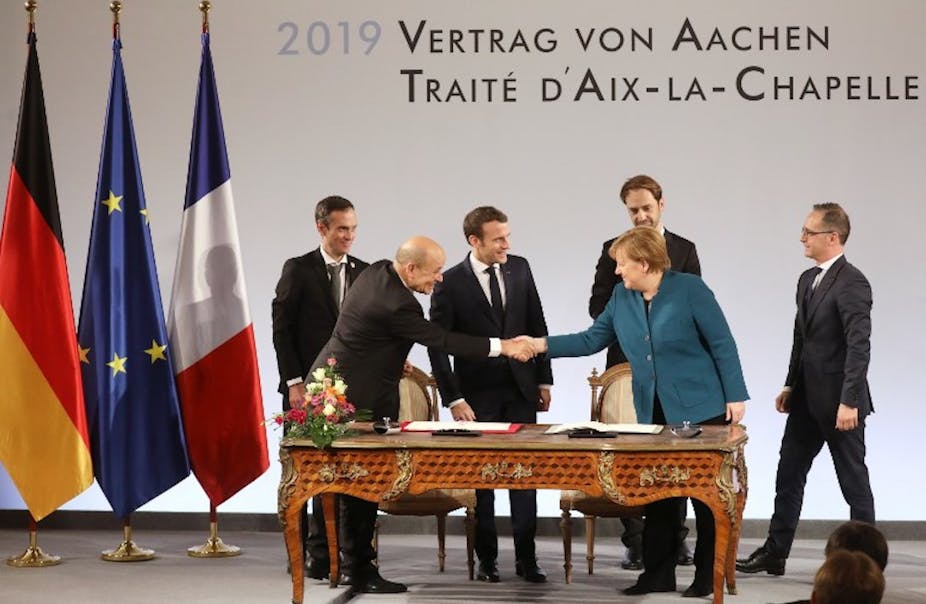On March 1, 2019, France assumed the presidency of the UN Security Council. This happens every 15 months because the presidency rotates every month between the 15 members of the Council, following the English alphabetical order of the members’ names. However, for the first time in history, France will jointly preside one of the most important bodies of the United Nations together with Germany, which is currently a non-permanent member elected for 2019-2020. This historic experience will be renewed next month when Germany will hold the presidency.
Three priorities for the joint presidency
It is important to understand that it will not be a “co‑presidency”, but a “joint presidency”. What does this mean? A co-presidency would have implied changing the functioning rules of the Council that state that one country is in charge of defining the programme of the Council, and organising and chairing its meetings.
Instead, France in March and Germany in April will remain president, but the two countries have agreed to coordinate their programmes. They have defined three priorities:
-
The protection of humanitarian personnel and respect of international humanitarian law;
Conflict resolution and a commitment to peace;
Defence of women rights and a strengthened participation of women in peace processes.
Since the 1990s, France has been advocating for an enlargement of the Security Council to include not only countries such as Germany, but also regional powers such as Japan and Brazil.
So why was this decided now? The obvious answer is that Germany is on the Security Council until December 31, 2020, which has not happened since its mandate in 2011-2012. While this explains why this joint presidency is possible, it does not tell us why it is happening.
France, more than a “middle-size power”
To understand this decision, we need to look at its context, and more specifically, take into account the influence of Brexit. The United Kingdom’s decision to leave the European Union has indeed played a double role.
First, if the UK leaves the European Union, this will mean that France will be the only European permanent member left on the Council and as a consequence, some have argued that France should allow its seat to become an EU one. For instance, this proposal was made by Germany’s finance minister Olaf Scholz in November 2018.
France’s permanent seat at the UN is an essential part of its foreign policy, but also of its identity. French presidents have emphasised since the end of the Cold War that its seat on the Council is one of the factors that make France “more than a middle-size power”, that it is part of its rank and grandeur.
Consequently, this joint presidency allowed France to counter what was perceived as unconceivable proposal, while also making its seat more legitimate at a time where France once again felt pressured to justify it.
“France and Germany must assume their responsibilities…”
The influence of Brexit is also visible if we look at when the decision of this joint presidency was made. It was indeed one of the measures French president Macron and German chancellor Merkel agreed to in the Aix-La-Chapelle treaty, signed in January 2019 to deepen the Franco-German cooperation to build a stronger Europe. As Macron argued at the signature of the treaty:
“At a time when our Europe is threatened by the nationalisms that are developing within it, where our Europe is shaken by a painful Brexit, where our Europe is worried about the great international changes… in this world and this Europe, Germany and France must assume their responsibilities and show the way.”
While this decision is good news for the European Union since “it will be the opportunity to focus on top priorities and main values of our two countries and of the European Union,” the same cannot be said for the UK.
It will only contribute to isolating the country even more in the Council, at a time where experts have already argued in their report “Global Britain in the UN” that the country’s influence at the UN has already suffered from its decision to leave the European Union.


